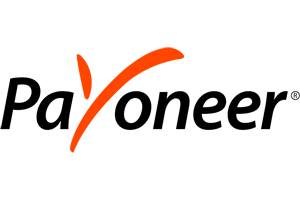FTAC Olympus Acquisition Corp. (FTOC) to Combine with Payoneer in $3.3Bn Deal
FTAC Olympus Acquisition Corp. (NASDAQ:FTOC) has entered a definitive agreement to combine with payments firm Payoneer for an enterprise value of $3.3 billion at 7.6x its 2021E revenue.
Payoneer provides a platform for ecommerce-enabling payments, international transfers and digital banking with about 4 million customers and 1,500 employees worldwide.
The transaction is expected to close in the first half of 2021, and continue to be led by Payoneer’s existing management.
Transaction Overview
FTAC Olympus brings $755 million from its current trust into the deal along with a $300 million PIPE at $10 per share. The PIPE drew investment from existing investor Wellington Management, as well as Dragoneer Investment Group, Fidelity Management & Research Company, Franklin Templeton, and funds managed by Millennium Management, Rowe Price Associates, and Winslow Capital Management.
At least 85% of this PIPE investment must be consummated as a condition of closing, and FTAC Olympus’s promote shares are tied to the SPAC meeting minimum cash conditions.
Should FTAC Olympus’ total available cash drop below $750 million, it must forfeit up to 30% of the promote proportionate to the discrepancy between the final number and this threshold. It appears for the moment fairly safe that this downside protection will not be needed however, due to the track record of the team and the fact that the SPAC is thus far trading around $14.
Payoneer expects to add $463 million to its balance sheet through the deal, while paying down $40 million in debt and $457 million will go out as a cash consideration to shareholders.

Existing Payoneer equity holders are expected to own 68.1% of the combined entity while FTAC Olympus shareholders are to own 19.2% and PIPE investors take 7.6%. FTAC Olympus’ sponsor is expected to own 5% if it meets all of its cash conditions. The sponsor must forfeit 10% of its 18,868,594 promote shares and 100% of its private placement warrants one way or the other, however.
Payoneer shareholders have the opportunity to gain 30,000,000 more shares through an earnout. Half of this amount will be issued if the combined entity trades at or above $15 for 20 of 30 trading days within 30 months of close and the other half at $17.
Quick Takes: Payoneer provides digital banking services ranging from the new trends like global multi-currency mobile wallets to old school services like paper checks and physical cards. Its suite of services scoop up most of the features in between as well with wire and bank transfers, tax software and working capital credit products.
FTAC Olympus Board Chairman Betsy Z. Cohen told CNBC this morning said that this diversity of offerings made it difficult to come to an appropriate valuation for the company, because there wasn’t a comp with exactly its complement of services.

In the end, Payoneer was assessed based on three baskets of listed comps in the areas their services cover: high-growth payments companies like Square (NYSE:SQ), e-commerce facilitators like Spotify (NYSE:SHOP) and global processors like Fiserv (NASDAQ:FISV). The valuations in these spaces vary greatly as the e-commerce group trades at 49.3x 2021E revenue, while the payments basket trades at 36.5x 2021E revenue and the processors at 7.2x.
It’s appears to be a big win that FTAC Olympus was able to prevail upon Payoneer to value it much closer to this latter group at 7.6x its 2021E revenue.
Payoneer does nonetheless touch strongly upon these other categories and maintains its growth by charging marketplaces rather than its base of small and medium-sized businesses (SMBs) fees on transactions. This serves as an attractive initial draw on SMBs to link up with Payoneer and they can then be cross-sold on the company’s wider range of banking services.

The company was founded in 2005, but it has picked up significant momentum recently. It has grown the transaction volume on its platform by more than 35% in each of past three years and more than doubled it year-on-year in 2018 and 2020. It grew the top line by at least 21% in two of the past years as well, with the pandemic slowing this year-on-year growth to 9% in 2020.
It expects to continue to grow revenue at a CAGR of 25% from $346 million in 2020 to $540 million in 2022E. Payoneer expects to run at an operating loss of -$50 million in 2021E and -$45 million in 2022, but turned an operating profit of $4 million in 2019. This largely comes with the territory, however. Of the comparable listed peers mentioned above, only Fiserv runs with a significantly positive operating margin at 11.4%.
Click here for the full investor presentation.
ADVISORS
- Financial Technology Partners is serving as exclusive financial and capital markets advisor to Payoneer.
- Davis Polk & Wardwell LLP is serving as legal counsel to Payoneer and Paul Hastings is serving as regulatory counsel to Payoneer.
- PwC is serving as Payoneer’s auditors.
- Citi and Goldman Sachs & Co. LLC are serving as financial and capital markets advisors to FTOC.
- Cantor Fitzgerald is serving as capital markets advisor to FTOC.
- Morgan Lewis is serving as legal counsel to FTOC.
- Goldman Sachs & Co. LLC and Citi are serving as placement agents on the PIPE.

